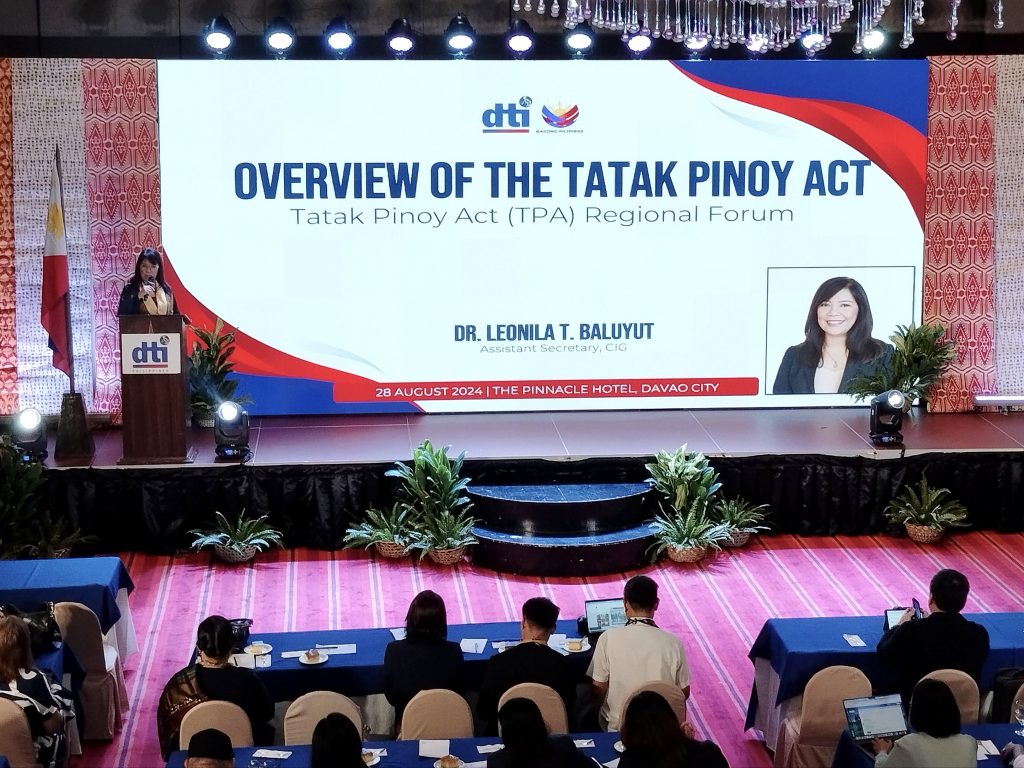THE DEPARTMENT of Trade and Industry (DTI) XI introduced the Tatak Pinoy (Proudly Filipino) Act (TPA) in a regional forum, also known as the Republic Act 11981, with its aim to enhance the productivity and competitiveness of the Philippine industries in the global market.
During its Mindanao leg regional forum on Aug. 28, Romeo Castañaga, DTI XI regional director, said the TPA would further create high-paying jobs and ultimately increase the country’s economic complexity.
“With productivity and competitiveness combined, we can maximize the benefits and advantages of the Tatak Pinoy Act,” Castañaga said.
Enacted on Feb. 26, 2024, the primary goal of the TPA is to produce a diverse array of more complex and high-quality products and move up the global value chain.
Leonila Baluyut, DTI-Competitiveness and Innovation Group assistant secretary, emphasized that the comprehensive strategy will leverage innovation technology, infra, and collaboration to drive sustainable growth and inclusivity.
“Specific to the Mindanao area, this initiative in fact is very crucial in strengthening a supportive ecosystem that will foster innovation and creativity that will drive regional growth leading to the country’s economic development,” Baluyut said.
At the core of the law is the formulation of the Multi-Year Tatak Pinoy Strategy (TPS), which is the country’s first industrial policy institutionalized through law.
Furthermore, the law supports Filipino businesses through key provisions such as “prioritizing Philippine products and services in government procurement (S.12), enhancing access to financing for MSMEs (S.13), facilitating market access (S.14), introducing green lanes for investments and exports (S.15), and ensures efficient VAT refund implementation (S.16).”
In line with the initiative, Davao City Chamber of Commerce president Belinda Torres stressed that through the TPA, major concerns of the business sector that has long been encountered could be addressed, such as the ease of doing business, cost of utilities, and cost of labor.
“Mindanao identifying these concerns would be able to achieve a certain level of productivity and competitiveness, provided that the industrial policies that have been mentioned should be lobbied intentionally for a specific sector for the improvement, not only of Davao Region but of Mindanao as a whole,” Torres said.
The regional forum was held from Aug. 28 to 29 at The Pinnacle Hotel, Davao City, and was attended by various stakeholders, including the Tatak Pinoy Council, namely the Department of Finance and the National Economic and Development Authority as vice-chairs; the Department of Agriculture, Department of Budget and Management, Department of Information and Communication Technology, Department of Interior and the Local Government, Department of Labor and Employment, and Department of Science and Technology; and four members from the private sector from reputable business groups and academic institutions.

